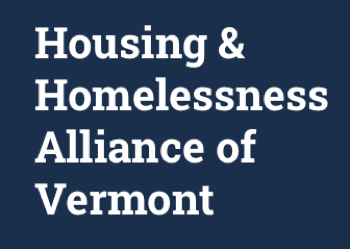Vermont Legislative Update About Homelessness June 20th 2025

GA Emergency Housing Update: Following the Governor’s veto of the BAA, which would have extended winter weather protections to all statutorily defined “vulnerable” unhoused Vermonters, Governor Scott signed Executive Order 03-25, which waived the 80-night cap for a limited number of GA eligible households. In terms of impact, according to the April Housing Report (Act 113), 303 households, including 366 adults and 59 children, lost their shelter through the GA program after the winter weather protections ended on March 31. According to the most recent DCF data, as of June 16 there are only 1,036 households currently in GA emergency housing, down from approximately 1,450 households during winter weather protections.
In addition, according to a letter released earlier this month by ESD, for households who have been sheltered in a hotel or motel under Executive Order No. 03-25, any days used under this executive order count toward the household’s 80-day limit within a 12-month period. As of June 16 there are 384 households in GA under the EO who will be negatively impacted by this.
At the Legislature:
The Vermont legislature concluded its 2025 session this week and will return for its 2026 session next January. There may be a special session later this fall to address possible federal funding impacts. We will provide additional details if a special session is called.
Here is a summary of some key issues during the 2025 legislative session:
- Funding for Affordable Housing Production and Homelessness Prevention Programs and Services: Governor Scott signed the FY26 budget on May 21. Here is HHAV’s one pager on the FY26 budget.
- General Assistance Emergency Housing: Here is HHAV’s FAQ document on General Assistance Emergency Housing for FY26 (July 1, 2025 - June 30, 2026). In addition, Governor Scott vetoed H.91. As a reminder, this bill would have impacted Vermont’s homelessness prevention and response system beginning in FY27. This bill/veto has no impact on FY 26 General Assistance or HOP funds. FY26 GA and HOP funds were included in the FY26 state budget, which the governor has already signed (see above).
- Community Housing and Infrastructure Program (CHIP): CHIP will allow a developer, municipality, or other agency to borrow money for infrastructure for a specific housing project and then use the increased tax revenue from the development to pay back the debt. This provision is in S.127, which Governor Scott signed.
